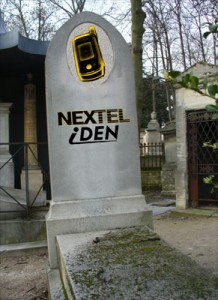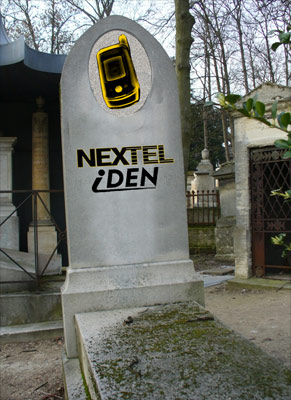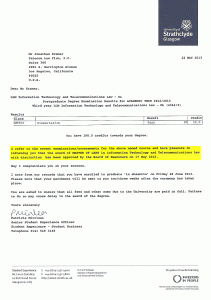The latest attempt by the wireless industry, and specifically AT&T, to bypass any rational zoning process, is in Missouri.
House Bill 331, “[t]o repeal sections 67.1830, 67.1836, 67.1838, 67.1842, 392.415, 392.420, and 392.461, RSMo, and to enact in lieu thereof twenty-two new sections relating to telecommunications” is a massage land grab the likes of which have not been seen elsewhere.
The Bill, which flew through the state legislature and is now sitting on Governor Nixon’s desk, would effective deregulate wireless communications from any effective local review or public participation.
Yesterday (Sunday, June 16), the Kansas City Star newspaper’s editorial urged Governor Nixon to veto the bill, saying “As much as Missouri needs to encourage a robust technology infrastructure, the placement of towers shouldn’t run roughshod over the wishes of communities or property owners. Yet that’s exactly what a bill on Gov. Jay Nixon’s desk enables cellphone service providers to do.” “There is no evidence that cities and counties in Missouri were making it unduly difficult to erect towers. House Bill 331 is simply a proactive move by corporate interests to have their way.” Read the entire editorial here.
The following is the legislature’s analysis of the bill as sent on to Governor Nixon.
SS HB 331 — UTILITIES
This bill changes the laws regarding infrastructure facilities deployment.
PUBLIC UTILITY RIGHT OF WAY PERMITS
The bill allows public utilities to have permit denials by political subdivisions heard in court if they believe a violation of existing law has occurred. Courts must act in an expedited manner by moving disputes over public right of way under Sections 67.1830 to 67.1848, RSMo, to the front of the docket. If a political subdivision does not act on a permit application within 31 days, then the application will be deemed approved. If a public utility has legally been granted access to a political subdivision’s right of way since August 28, 2001, they are not required to obtain a new permit.
UNIFORM WIRELESS COMMUNICATIONS INFRASTRUCTURE DEPLOYMENT ACT
The bill establishes the Uniform Wireless Communications Infrastructure Deployment Act to encourage and streamline the deployment of broadband facilities and to help ensure that robust wireless communication services are available throughout Missouri. The bill:
(1) Prohibits an authority as specified in the bill with jurisdiction over wireless communications infrastructure from taking specified actions that could result in a non-uniform market for wireless service in Missouri. The prohibition does not include state courts having jurisdiction over land use, planning, or zoning decisions made by an authority. The prohibitions include:
(a) Requiring an applicant to submit information about or evaluate an applicant’s business decisions with respect to its designed service, customer demand for service, or quality of its service to or from a particular area or site;
(b) Evaluating an application based on the availability of other potential locations for the placement of wireless support structures or wireless facilities including, without limitation, the option to add wireless infrastructure to existing facilities instead of constructing a new wireless support structure or for substantial modifications of a support structure or vice versa;
(c) Dictating the type of wireless facilities, infrastructure, or technology to be used by the applicant by requiring an applicant to construct a distributed antenna system in lieu of constructing a new wireless support structure;
(d) Requiring the removal of existing wireless support structures or wireless facilities, wherever located, as a condition for approval of an application;
(e) Imposing environmental testing, sampling, or monitoring requirements or other compliance measures for radio frequency emissions on wireless facilities that are categorically excluded under the Federal Communications Commission’s rules for radio frequency emissions under 47 CFR 1.1307(b)(1) or other applicable federal law;
(f) Establishing or enforcing regulations or procedures for RF signal strength or the adequacy of service quality;
(g) Rejecting an application in conformance with 47 U.S.C. Section 332(c)(7)(b)(4), in whole or in part, based on perceived or alleged environmental effects of radio frequency emissions;
(h) Imposing any restrictions with respect to objects in navigable airspace that are greater than or in conflict with the restrictions imposed by the Federal Aviation Administration;
(i) Prohibiting the placement of emergency power systems that comply with federal and state environmental requirements;
(j) Charging an application fee, consulting fee, or other fee associated with the submission, review, processing, and approval of an application that is not required for similar types of commercial development within the authority’s jurisdiction. Fees imposed by an authority for or directly by a third-party entity providing review or technical consultation to the authority must be based on actual, direct, and reasonable administrative costs incurred for the review, processing, and approval of an application. In no case should total charges and fees exceed $500 for a collocation application or $1,500 for an application for a new wireless support structure or for a substantial modification of a wireless support structure. An entity with jurisdiction or any third-party entity cannot include within its charges any travel expenses incurred in a third-party’s review of an application, and in no event can an applicant be required to pay or reimburse an authority for consultation or other third-party fees based on a contingency or result-based arrangement;
(k) Imposing surety requirements, including bonds, escrow
deposits, letters of credit, or any other type of financial surety, to ensure that abandoned or unused facilities can be removed unless the authority imposes similar requirements on other permits for other types of commercial development or land uses;
(l) Conditioning the approval of an application on the applicant’s agreement to provide space on or near the wireless support structure for authority or local governmental services at less than the market rate for space or to provide other services via the structure or facilities at less than the market rate for the services;
(m) Limiting the duration of the approval of an application;
(n) Discriminating or creating a preference on the basis of the ownership, including ownership by the authority, of any property, structure, or tower when establishing rules or procedures for siting wireless facilities or for evaluating applications;
(o) Imposing any requirements or obligations regarding the presentation or appearance of facilities including, but not limited to, those relating to the kind or type of materials used and those relating to arranging, screening, or landscaping of facilities if the requirements are unreasonable;
(p) Imposing any requirements that an applicant purchase, subscribe to, use, or employ facilities, networks, or services owned, provided, or operated by an authority, in whole or in part, or by any entity in which an authority has a competitive, economic, financial, governance, or other interest;
(q) Conditioning the approval of an application on, or otherwise requiring, the applicant’s agreement to indemnify or insure the authority in connection with the authority’s exercise of its police power-based regulations; or
(r) Conditioning or requiring the approval of an application based on the applicant’s agreement to permit any wireless facilities provided or operated, in whole or in part, by an authority or by any entity in which an authority has a competitive, economic, financial, governance, or other interest, to be placed at or connected to the applicant’s wireless support structure;
(2) Allows authorities to continue to exercise zoning, land use, planning, and permitting authority within their territorial boundaries with regard to the siting of new wireless support structures, requirements, and with regard to applications for substantial modifications of wireless support structures. The authority must review, within 120 days of receiving an application to construct a new wireless support structure or within the additional time as may be mutually agreed to by an applicant and an authority, the application as to its conformity with applicable local zoning regulations and advise the applicant in writing of its final decision to approve or disapprove the application. Applications will include a copy of a lease or other agreement from the property owner evidencing a right to pursue the application. The authority must, within 120 days of receiving an application for a substantial modification of wireless support structures, review the application as to its conformity with applicable local zoning regulations and advise the applicant in writing of its final decision to approve or deny the application. Procedures for extending these deadlines and fixing deficiencies are also specified in the bill. A party aggrieved by the final action of an authority or its inaction may bring an action for review in any court of competent jurisdiction;
(3) Requires an application for additions to or replacement of wireless facilities to be reviewed for compliance with applicable building permit requirements. Applications will include a copy of a lease or letter or agreement from the property owner evidencing the applicant’s right to pursue the application. The authority must, within 90 days, review the application as to its conformity with applicable building permit requirements and consistency with the provisions of the act and advise the applicant in writing of its final decision to approve or deny the application. However, procedures for expediting or extending the deadline and for fixing deficiencies are also specified in the bill. With regard to collocation applications the overall deadline is 45 days with procedures for notification and remedy of deficiencies specified in the bill;
(4) Specifies that the provisions of the bill do not authorize an authority, except when acting solely in its capacity as a utility, to mandate, require, or regulate the placement, modification, or attachments of any new wireless facility on new, existing, or replacement poles owned or operated by a utility or expand the power of an authority to regulate any utility;
(5) Prohibits an authority from instituting a moratorium on the permitting, construction, or issuance of approval of new wireless support structures, substantial modifications of wireless support structures, or attachments to existing facilities of wireless communication infrastructure if the moratorium exceeds six months and if no good cause is shown. A moratorium must not affect pending applications;
(6) Prohibits an authority from charging a wireless service provider or wireless infrastructure provider any rental, license, or other fee to locate a wireless support structure on an authority’s property in excess of the current market rates for rental or use of similarly situated property. An authority may not offer a lease or contract to use public lands to locate a wireless support structure on an authority’s property that is less than 15 years in duration. A process for the resolution of any disputes over fair market value lease payments using appraisers appointed by both parties is also specified in the bill; and
(7) Prohibits applicants for wireless facility permits from having the power of eminent domain or the right to compel any private or public property owner, the Department of Conservation, or the Department of Natural Resources to lease or sell property or locate wireless facilities on existing structures.
RAILROAD FACILITY UTILITY CROSSINGS
The bill establishes procedures for utilities regulated by the Missouri Public Service Commission or rural electric cooperatives, municipal utilities, and specified nonprofit electrical corporations in third classification counties, to construct a facility as specified in the bill through a railroad right-of-way.
The bill specifies that a utility must be deemed to have authorization to commence a crossing activity 30 days from the mailing of the notice, completing the engineering specifications, and payment of the fee, absent a claim of special circumstances. The utility may propose an amended crossing proposal if special circumstances exist. The land management company and the utility must maintain and repair its own property within the railroad right-of-way and bear responsibility for its own acts and omissions, except that the utility must be responsible for any bodily injury or property damage that typically would be covered under a standard railroad protective liability insurance policy. A utility must have immediate access to a crossing for repair and maintenance of existing facilities in case of emergency. Applicable engineering standards must be complied with for utility facilities crossing railroad rights-of-way. The engineering specifications must address the applicable clearance requirements as established by the National Electrical Safety Code and the American Railway Engineering and Maintenance of Way Association.
Unless otherwise agreed by the parties and subject to Section 389.588, a utility that locates its facilities within the railroad right-of-way for a crossing, other than a crossing along a state highway, must pay the land management company a one-time standard crossing fee of $1500 for each crossing plus the costs associated with modifications to existing insurance contracts of the land management company. The standard crossing fee must be in lieu of any license, permit, application, plan review, or any other fees or charges to reimburse the land management company for direct expenses incurred by the land management company as a result of the crossing. The utility must also reimburse the land management company for any actual flagging expenses associated with a crossing in addition to the standard crossing fee.
The provisions of the bill cannot prevent a land management company and a utility from otherwise negotiating the terms and conditions applicable to a crossing or the resolution of any disputes relating to the crossing and cannot impair the authority of a utility to secure crossing rights by easement through the exercise of the power of eminent domain.
If a utility and land management company cannot agree that special circumstances exist regarding a particular crossing, the dispute must be submitted to binding arbitration in accordance with the commercial rules of arbitration in the American Arbitration Association. However, each party may also pursue relief in a court of proper jurisdiction and the winning side must be awarded attorney fees. If a dispute involves only compensation associated with a crossing, the utility may proceed with the installation of a crossing while the arbitration is pending.
The bill does not modify any power of condemnation or grant the exercise of eminent domain power to any entity.
The provisions of the bill apply to a crossing commenced prior to August 28, 2013, if an agreement concerning the crossing has expired or is terminated and to a crossing commenced on or after August 28, 2013.
EMERGENCY INFORMATION REQUESTS
The bill provides immunity from suit for providers of communication related services for providing information to law enforcement officials or agencies under Section 392.415.
PRICE CAP WAIVERS
The bill allows specified telecommunications companies that are currently regulated by the Missouri Public Service Commission and have maximum price caps to seek a waiver from the commission for the price cap regulations in the same manner waivers are currently granted for other rules and regulations.
MISCELLANEOUS TELECOMMUNICATION PROVISIONS
The bill also makes the following changes to telecommunication regulations:
(1) Allows a telecommunications company to include any, all, or none of its rates for any, all, or none of its retail services in a tariff filed with the commission;
(2) Exempts specified telecommunications companies that hold a state charter or are licensed to do business under Chapter 392 from most rules and regulations relating to the retail services under Chapter 386, except the companies may voluntarily comply with the commission’s orders, rules, or statutes by notifying the commission. Telecommunications companies are still required to collect the universal service fund surcharge; report the intrastate telecommunications service revenues necessary to calculate the commission assessment, universal service fund surcharge, and telecommunications programs under Section 209.255; and comply with the emergency location requirements;
(3) Exempts broadband and other Internet protocol-enabled services from the regulations under Chapters 386 and 392 except that voice over Internet protocol services must comply with the fees and registration requirements enforced by the commission under Section 392.550;
(4) Specifies that the commission retains jurisdiction over all matters delegated to it by federal law and the bill does not modify these duties in any way; and
(5) Allows telecommunications companies to register with the commission and obtain certification using the same process as used for voice over Internet protocol service under Section 392.550.3.
If Governor Nixon signs this legislation into lex, the existing Missouri state motto “Salus populi suprema lex esto” should change to “Salus AT&T suprema lex esto”.








